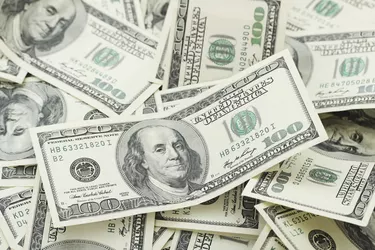
Currency that you can quickly convert into another type of currency is convertible money. Currency that you cannot convert into another type of currency is inconvertible money. Certificates that you can exchange for a specific quantity of a commodity or a certificate that represents money but is not actually money is representative money.
Types of Paper Money
Video of the Day
Convertible, inconvertible and representative money are forms of what economists call paper money. Another form of paper money is fiat money. Fiat money is typically the paper money of a country, such as the U.S. dollar or Japanese yen. A commodity such as gold or silver does not back the value of fiat money, which is subject to devaluation due to economic crises such as hyperinflation. Political unrest and wars also affect the value of fiat money and can cause it to become worthless.
Video of the Day
Convertible Money
Investors consider convertible money or currency as having a high level of liquidity because they can buy, sell and exchange convertible currencies with little or no government restrictions. Investors may decide to buy convertible currencies if market predictions point toward the positive economic growth of a country. Economic growth often indicates that the value of a country's currency is set to increase in value or appreciate in relation to another country's currency.
Inconvertible Money
Inconvertible money or currency is illiquid because investors cannot buy, sell or exchange it due to political sanctions, government restrictions, foreign exchange regulations or high volatility. When a government regulatory authority or a central bank of a country labels a currency as inconvertible, it does so as a means to protect investors from buying, selling or exchanging stable currencies for what government regulators deem to be unstable currencies.
Representative Money
Representative money can be a certificate of claim on a commodity such as gold, silver or oil. The owner of this certificate can exchange it for the worth of the commodity. Exchanging the certificate for the actual commodity is not representative money, it is commodity money. Representative money can also be a paper certificate that represents the maker of the certificate's intention to pay the owner of the certificate actual money. For example, a cashier's check from a bank can be considered representative money.